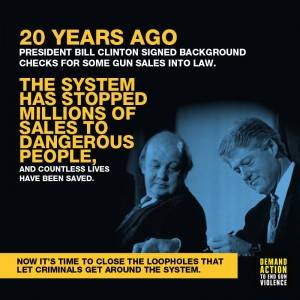On the eve of Hanukkah thoughts turn to the meaning we glean from the ritual and what we remember, particularly the cause of freedom and what is necessary to achieve it. As we recall the Maccabees, I think of the words of acclaimed anthropologist Margaret Meade who once said, “Never Doubt that a small group of thoughtful, committed citizens can change the world; indeed it’s the only thing that ever has.”
Many of us remember to that momentous time on December 6, 1987 when a quarter of a million people came together on the National Mall to protest during Premier Mikhael Gorbachev’s visit to Washington demanding that he “let my people go,” and grant the right of Soviet Jews to emigrate to Israel. But before 250,000 people could gather and speak with one voice, people needed to galvanize them. In fact it was on May 1, 1964, outside the Russian Legation to the United Nations in Manhattan, that the first mass public rally to support Soviet Jewry was held. This was the original committed core that started the process, and as they say, the rest is history. Those Soviet Jews that wanted to were eventually granted the right to make aliyah and go to live as Jews in the Land of Israel.
We celebrate those brave souls who risked their personal safety to stand for the ideal of freedom that is embodied in Judaism. We rightfully pay tribute to those who stood up and spoke to power there knowing free speech did not exist in that place, that such speech came at a great price. Those of us here in the United States were encouraged and energized by their voices and we joined ours to theirs. The cry for freedom grew louder and louder until it could no longer be ignored. The doors opened and the great exodus of the twentieth century began; the Jews of the Soviet Union came home.
We saw the power of the word defeat the mighty. We can and should celebrate this modern miracle. But the past is only prologue. For not all the Jews left. What of those that remained behind? They could have been forgotten as our attention focused on the new Olim and we reveled in our accomplishment. But that small committed group continues to make its voice heard and the Jews of the Former Soviet Union have also entered into a new era.
The Jews of the FSU are actively reconnecting with their Judaism that others had tried to take away two generations ago. With the help of outside groups such as the JDC there is a Jewish revival happening. It is not the whispers of Jews practicing their faith behind closed doors, but Jews being and doing Jewish in the open. To visit major urban centers in the FSU, Synagogues that had been shuttered or once repurposed as things like warehouses are now open for business as places of worship. We saw with amazement not only synagogues but also day schools and Jewish Community Centers. And even more remarkable, not only Chabad is there, but so are other streams of Judaism. An organic Judaism is taking hold as Jews rediscover and reconnect to their past, themselves, and their future.
The work is far from over. Rabbi Tarfon tells us in Pirkei Avot that “You are not duty bound to finish the work, but neither can you desist from it.” Judaism’s rise in the FSU, from near extinction to flourishing, is nascent. It remains our sacred obligation to use our power and influence to nurture Jews around the world seeking to connect with our sacred wisdom. We are there to open the doors and welcome our brothers and sisters to join Klal Yisrael. Our true tribute to those who have done so much for the cause of freedom is to continue the work that they started and help the next generation of Jews.



